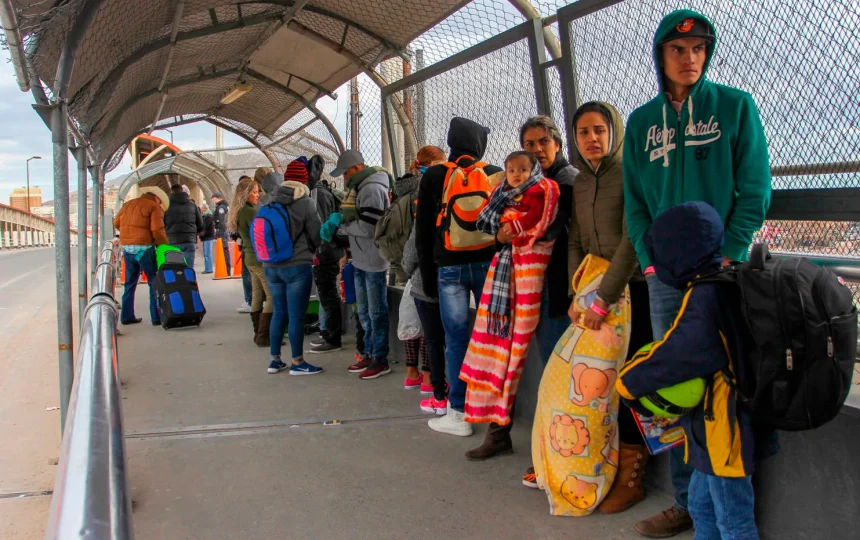In a significant policy shift, the United States government has issued orders for certain asylum-seeking migrants to depart the country, following the revocation of their parole. This move signals a hardening stance on immigration enforcement, impacting individuals who initially entered the US with pending asylum applications.
The recent directive has sparked concerns among human rights advocates, who argue that it could lead to the deportation of vulnerable individuals. Officials, however, maintain that the actions are necessary to uphold the integrity of the immigration system.
“The revocation of parole and subsequent departure orders are part of our commitment to ensuring that those who enter the United States do so through legal and established channels,” a source within the Department of Homeland Security stated, speaking on condition of anonymity.
The decision affects migrants who were granted parole, a temporary authorization allowing them to remain in the US while their asylum cases were processed. This practice has been utilized to manage the influx of individuals arriving at the southern border. However, the current administration is now revisiting these cases, leading to the revocation of parole for select groups.
The complexities of each individual’s situation those fleeing violence or seeking refuge are often lost in the broader policy discussions.
“These policies create immense uncertainty and fear for individuals who have already endured significant hardship,” says a representative from a non-governmental organization working with migrants. “The lack of clarity and the abrupt nature of these revocations are particularly distressing.”
Read Also: Trump’s “Gold Card”: A $5 Million Path to US Citizenship
The impact of these orders is likely to be felt most acutely in communities along the southern border, where many migrants have established temporary roots. The sudden requirement to depart creates logistical and emotional challenges for individuals and families who have been navigating the complex asylum process.
The US government’s actions reflect an ongoing debate about border security and immigration enforcement. The need to balance humanitarian concerns with the imperative to maintain a regulated immigration system remains a complex challenge.
The situation is developing, and further updates are expected as more details emerge about the implementation of these orders. The implications for the affected migrants and the broader immigration landscape are significant, and I will continue to monitor and report on this evolving story.












